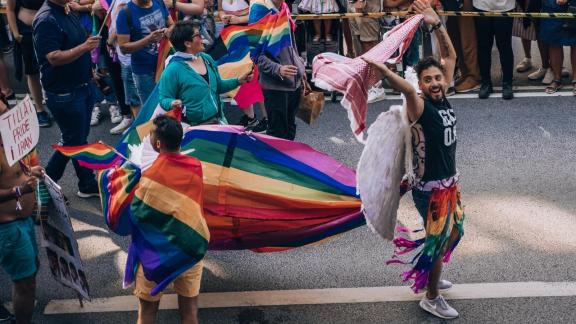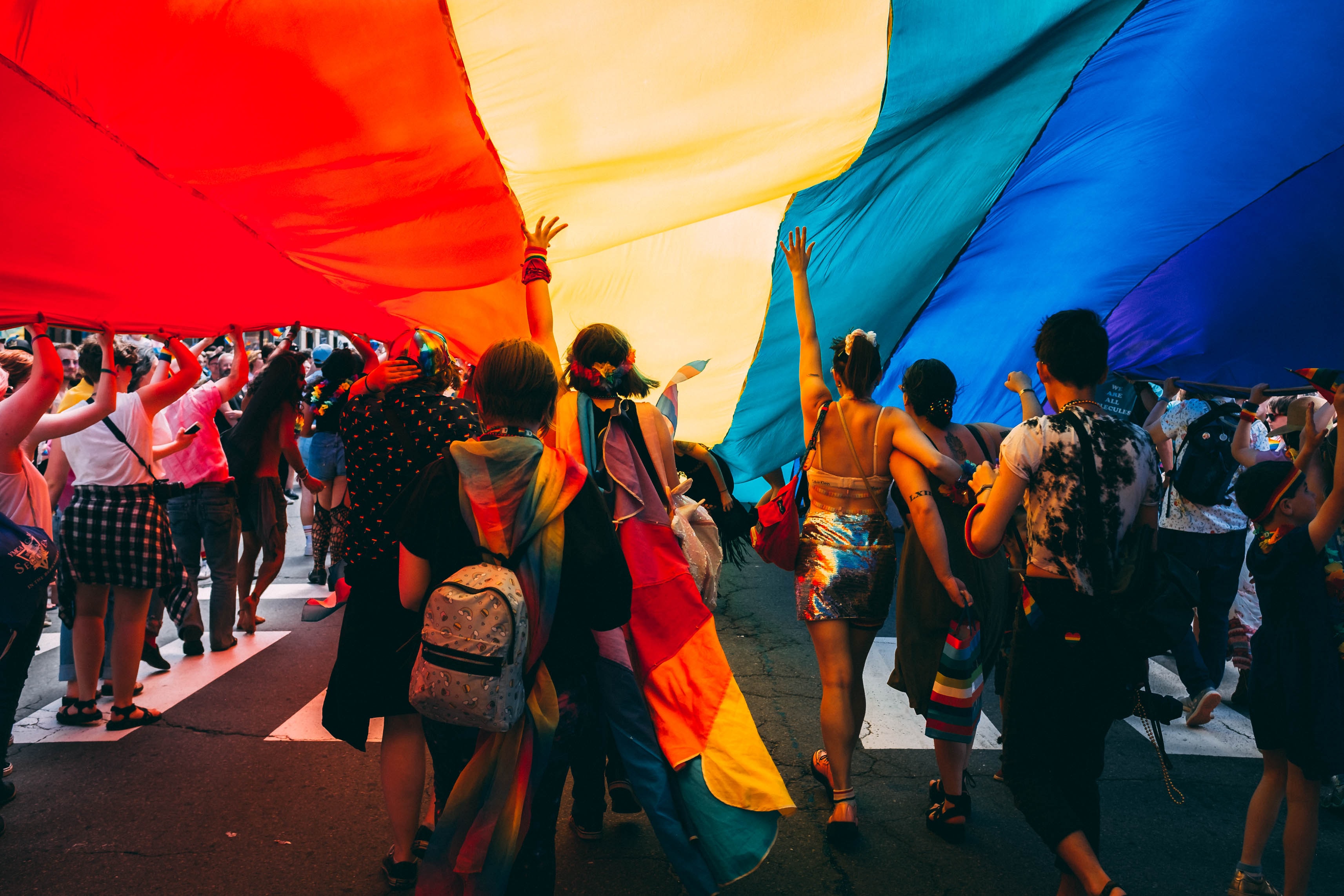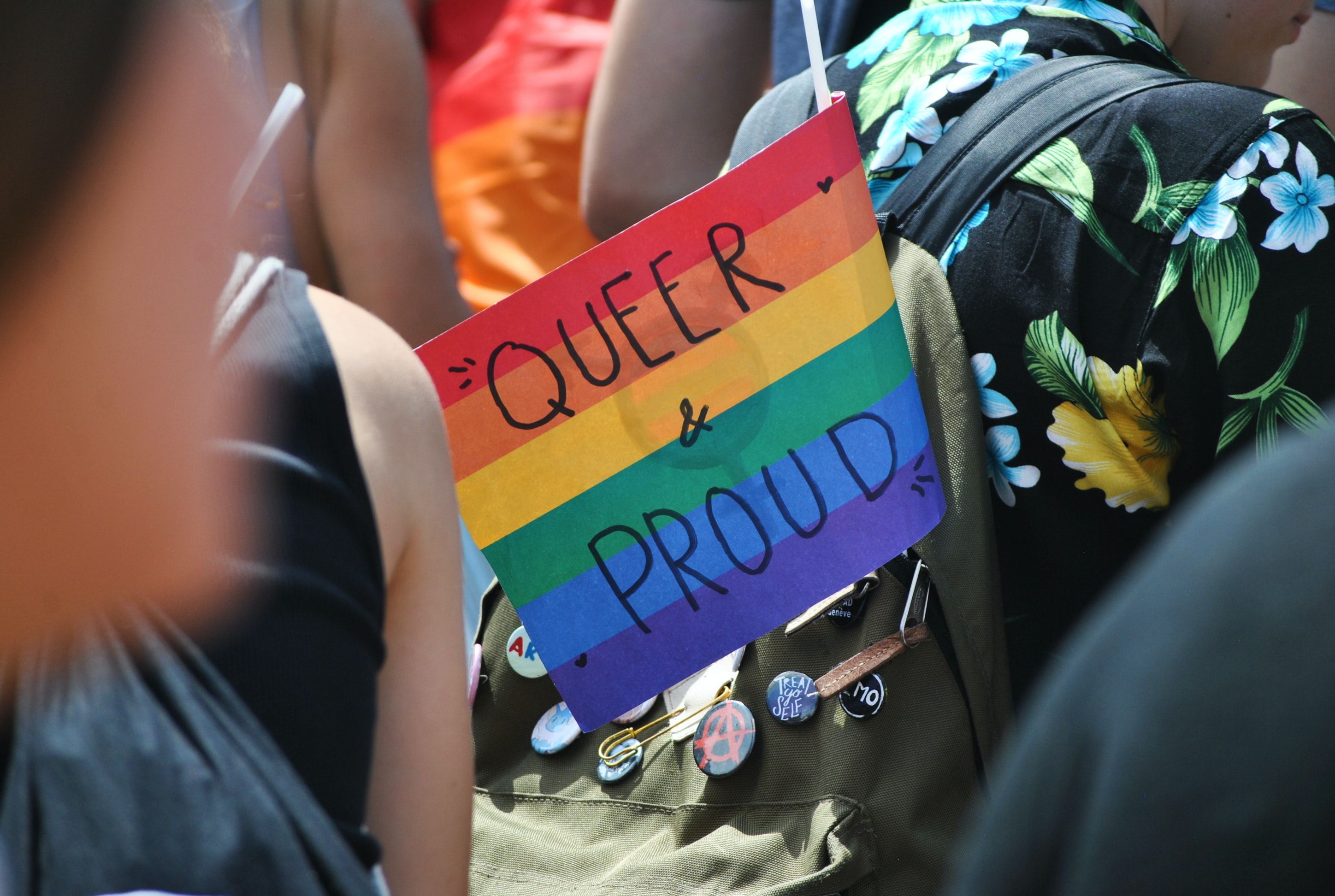In the year since the last Pride Month, there have been substantial developments for LGBTQ+ communities all around the world. From the decriminalization of same-sex relationships in Botswana to the banning of abusive “conversion therapy” practices in Greece, and much more, see what’s changed since the last Pride in June 2021:
Switzerland
There was some great news out of Switzerland in September 2021, when the country took to the ballots to vote decisively on a referendum to make same-sex marriage legal, and to give same-sex couples the right to adopt children. Switzerland had previously allowed same-sex couples to register partnerships since 2007, but some rights were still restricted. Nearly two-thirds of voters backed the new measures, making Switzerland the 30th country in the world to adopt same-sex marriage.
South Africa
South Africa’s local elections in November 2021 saw what is likely to be Africa’s first openly gay mayor elected to office. Chris Pappas, who is just 30-years-old, was elected mayor of uMngeni municipality in KwaZulu Natal, a traditionally conservative province – making the victory even more stunning. He made no secret of his sexual orientation, appearing alongside his fiancé JP Prinsloo during his winning campaign.
Canada
In December, Canadian lawmakers passed a motion banning the harmful practice of so-called “conversion therapy”. Repeated attempts to pass legislation banning the practice had been made in recent years, though none had succeeded until this point. Following the vote, Canadian MP Randy Boissonnault, who is gay, said: “I dream of the day when LGBTQ2 issues are no longer political footballs. And we are one day closer to that future.”
Botswana
December 2021 saw a huge victory for LGBTQ+ equality in Botswana as the country’s appeals court upheld a ruling that decriminalized same-sex relationships. Una Ngwenya, Executive Director of BOFWA (an IPPF Member Association), expressed her joy at the decision, stating that: “the ruling will go a long way in addressing issues of stigma and discrimination against members of the same-sex community in Botswana. We believe that this decision will inspire members of this community to freely seek sexual and reproductive health services and go on with their lives like everyone else.”
Chile
Also in December 2021, Chile's congress approved a long-awaited bill to legalize same-sex marriage, joining just a handful of countries in Latin America with similar laws. The only other countries in the region which permit same-sex couples to marry are Costa Rica, Ecuador, Colombia, Brazil, Uruguay, Argentina, and 14 of Mexico's 32 states. Chile legalized same-sex civil unions in 2015, and has been eagerly awaiting the legalization of gay marriage since a bill was sent to Congress in 2017.
France
2022 started on a positive note when France's parliament voted in January to ban so-called "conversion therapy" – a discredited practice which has no place in any society, anywhere. The measure was passed unanimously by the National Assembly, with 142 votes to 0. French President Emmanuel Macron praised the move, stating that "being oneself is not a crime". Anyone convicted under the new law could face fines of up to €30,000 and two years in jail.
New Zealand
In the same month, New Zealand also banned conversion practices, in a nearly unanimous vote among lawmakers. The legislation makes it an offence to perform conversion practices on anyone under 18, or with impaired decision-making capacity. Anyone doing so faces up to three years in prison. It is also an offence to perform conversion practices that cause “serious harm”, irrespective of age, carrying a sentence of up to five years’ imprisonment.
Kuwait
There was a major win for trans rights in February 2022 when Kuwait's Constitutional Court overturned a law criminalizing the so-called "imitation of the opposite sex." In its decision, the court acknowledged the law’s ambiguity, noting it does not specify what exactly constitutes an “imitation of the opposite sex,” and the law’s lack of objectivity in application. This cruel law must now be repealed entirely and anyone arrested or held under it released immediately.
Guatemala
In March 2022, Guatemala's Congress passed a law which prohibited same-sex marriage and banned the teaching of comprehensive sexuality education and sexual diversity in schools. Shockingly, it also tripled prison sentences for women seeking abortion care. Following widespread global condemnation, Guatemala dropped the legislation days later but activists remain on alert to ensure these damaging policies do not re-emerge at another time.
Greece
In May 2022, Greece banned "LGBTQ conversion therapy” for minors. Greek Health Minister Thanos Plevris told parliament: “There were some false treatments that stated that when a minor has chosen a different sexual orientation, his parents could supposedly proceed with 'treatments' for this child to 'return to normality'. Obviously these treatments not only are not a therapy but they are not supported scientifically.”
Japan
And finally, also just last month Japan’s capital city Tokyo announced it will recognize same-sex partnerships as of this November. However, couples will still not be granted the same rights as married couples, and so IPPF urges Japan to implement fair laws for all. In the Asia region, Taiwan is currently the only place with marriage equality, having taken the unprecedented step of legalizing same-sex unions in 2019.
To keep up with more global changes, follow ILGA World – the international lesbian, gay, bisexual, trans and intersex association.
Main image by Lindsey LaMont on Unsplash
You might be interested in this... Sex og Politikk (our Norwegian Member Association which hosts the IPPF Center for Sexual and Gender Diversity) is organizing a series of public talks under the title “How far are we going to allow the state in the bedroom?” With both state and civil society actors from Norway and abroad, these events are in observation of 50 years since the decriminalization of homosexuality in the country.
The first event takes place on 20 June and is titled “There are no gays in our village: A conversation on public health opening doors to decriminalization, non-discrimination and full LGBTQI+ equality”. The second takes place on 22 June and is titled “What kind of gender markers do we need in documents?” Both events are expected to be livestreamed – check the links to get involved.
when
Subject
LGBTI+










